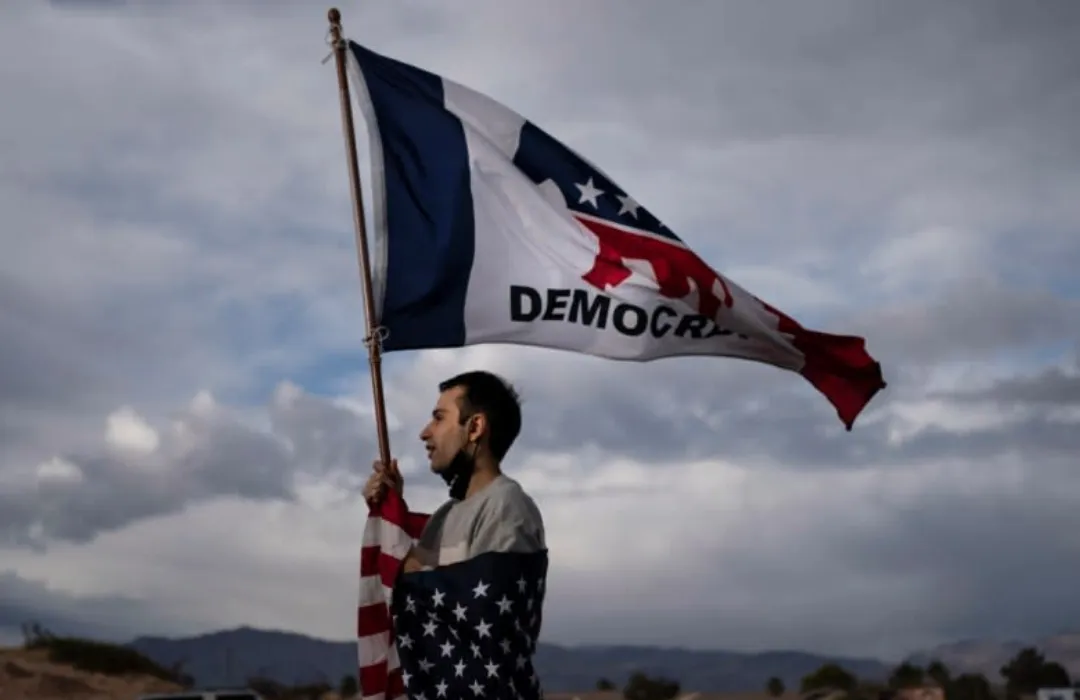
Elon Musk and the Department of Government Efficiency (DOGE) have been dealt a significant legal blow after a federal judge ruled that their efforts to dismantle the U.S. Agency for International Development (USAID) were “likely” unconstitutional.
The ruling comes after a lawsuit filed by several USAID employees who alleged that the agency’s workforce had been drastically reduced, a move tied to the Trump administration’s broader objective to cut back on international aid agencies.
The judge’s decision, handed down Tuesday, marked the first time that a court had specifically targeted Musk and DOGE, two entities involved in the controversial efforts to weaken the agency. The court’s ruling effectively requires Musk and DOGE to restore USAID's functionality and reinstate its operations, particularly its workforce and critical communications systems.
The case arose after USAID experienced significant workforce reductions, reportedly slashing its personnel by up to 98 percent, which plaintiffs argued was part of an unconstitutional move to close the agency. The lawsuit filed by USAID employees alleged that the moves to dismantle the agency violated multiple aspects of U.S. law, particularly the constitutional principle of separation of powers.
Federal District Judge Theodore Chuang of Maryland delivered the 70-page ruling, which critiqued DOGE’s actions as likely violating both the U.S. Constitution and congressional authority. According to Chuang, DOGE’s efforts to close USAID and reduce its personnel without proper approval from Congress and appointed officials were not only unconstitutional but also harmful to the public interest.
The ruling emphasized that the legislative branch, specifically Congress, holds the constitutional authority to decide the fate of federal agencies, including whether they should be closed or restructured.
“The Court finds that Defendants’ actions taken to shut down USAID on an accelerated basis, including its apparent decision to permanently close USAID headquarters without the approval of a duly appointed USAID Officer, likely violated the United States Constitution in multiple ways,” Judge Chuang wrote.
“These actions harmed not only Plaintiffs, but also the public interest, because they deprived the public’s elected representatives in Congress of their constitutional authority to decide whether, when, and how to close down an agency created by Congress.”
The ruling was particularly significant because it placed responsibility directly on Elon Musk and DOGE. Musk, who is often associated with unconventional business ventures and entities, including Tesla and SpaceX, was personally affected by the judge’s order.
Musk and DOGE had previously attempted to implement sweeping changes to USAID, including the termination of employees and dismantling critical functions without consulting or obtaining authorization from the proper government officials.
This move by Musk and DOGE sparked outrage among USAID employees and government officials, with critics claiming that the dismantling of USAID’s operations and its personnel cuts were designed to further the interests of private entities rather than the American people.
The public interest aspect of the case was central to the judge's ruling, which suggested that the unilateral actions by Musk and DOGE violated the separation of powers and the responsibilities entrusted to elected officials by voters.
In addition to his financial and business ventures, Musk’s involvement with DOGE raised questions about his broader role in government efficiency and whether his activities were interfering with public institutions and services. The ruling, which explicitly targeted Musk and DOGE, shows how his influence in sectors outside his core businesses has been increasingly scrutinized.
Judge Chuang’s ruling did grant some relief to the plaintiffs, but not all of the requested measures were upheld. For example, while the mass terminations of personnel and contract terminations were seen as part of DOGE’s larger goal of dismantling USAID, the court did not rule to immediately block these actions.
Chuang stated that the plaintiffs did not provide sufficient evidence to justify stopping the decisions entirely. However, the court did issue specific prohibitions against further destructive actions.
The ruling bars Musk and DOGE from terminating additional employees, contracts, or grants and prevents them from destroying records or tampering with USAID’s website. Additionally, the court ordered that Musk and DOGE must stop any further actions relating to USAID without the express approval of an authorized USAID official.
This includes restoring access to email, payments, and security notifications for current USAID employees and contractors, addressing concerns about security and privacy raised by the plaintiffs.
Furthermore, the judge ruled that USAID’s headquarters, which were previously emptied by DOGE, must be reoccupied by its employees. This part of the ruling effectively ordered that USAID’s staff be allowed to return to their offices and resume their work if the final decision favors the plaintiffs.
Musk responded to the ruling in a typically defiant manner, using social media to share his thoughts on the matter. On the platform X, Musk reshared a post from Charlie Kirk, founder of Turning Point USA, which criticized the left for allegedly favoring open borders and sending American money abroad.
Musk’s reposting of Kirk’s message was seen as further evidence of his opposition to the legal ruling and his willingness to challenge the court’s decision.
“Indeed,” Musk replied, signaling his dissatisfaction with the ruling and his ongoing push against what he views as overreach by the government in regulating or controlling private entities.
The legal battle surrounding USAID’s future highlights broader questions about government transparency, accountability, and the influence of private sector leaders on public institutions. With Musk’s involvement, the case also brings attention to the intersection of tech, government, and international aid, a complex area where private interests and public good often collide.
The ruling could have significant implications for future efforts to restructure or dismantle federal agencies, particularly those involved in international aid and humanitarian work. As this case moves through the courts, it will likely raise important questions about the role of private business leaders in influencing government policy and whether such actions should be subject to judicial oversight.
The future of USAID remains uncertain, but the ruling provides a clear indication that the court will continue to scrutinize efforts to dismantle or limit the agency’s functionality. The Biden administration has expressed its commitment to restoring and strengthening the capacity of agencies like USAID, which play a critical role in international development, humanitarian assistance, and diplomacy.

USAID’s mission includes addressing global challenges such as poverty, education, and climate change, and its funding is crucial to supporting various international projects that benefit both U.S. interests and global stability. The outcome of this legal battle could ultimately shape the future of U.S. foreign aid and the role of private sector leaders like Musk in influencing the operations of government agencies.


-1745573038-q80.webp)
-1748089112-q80.webp)

